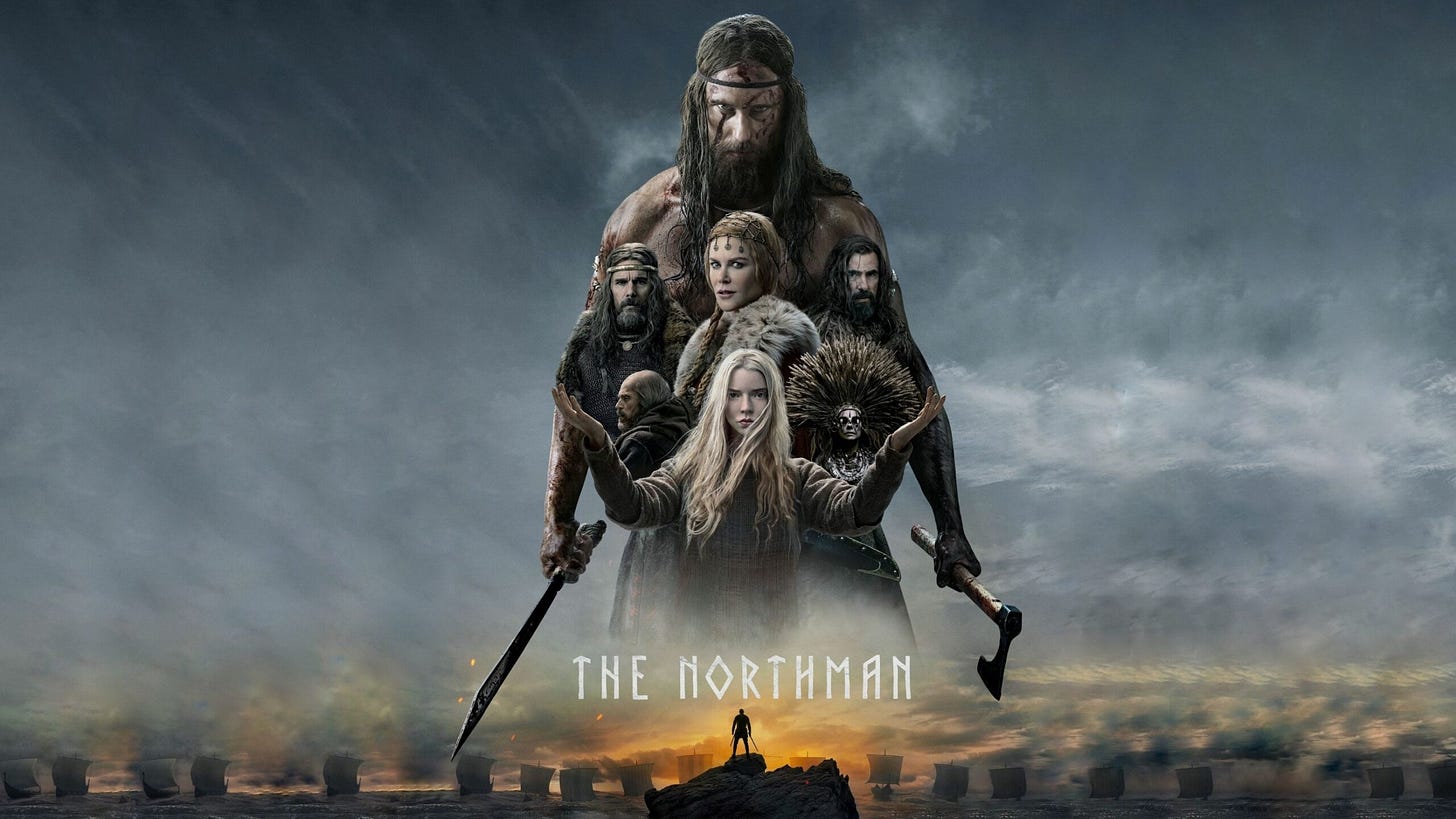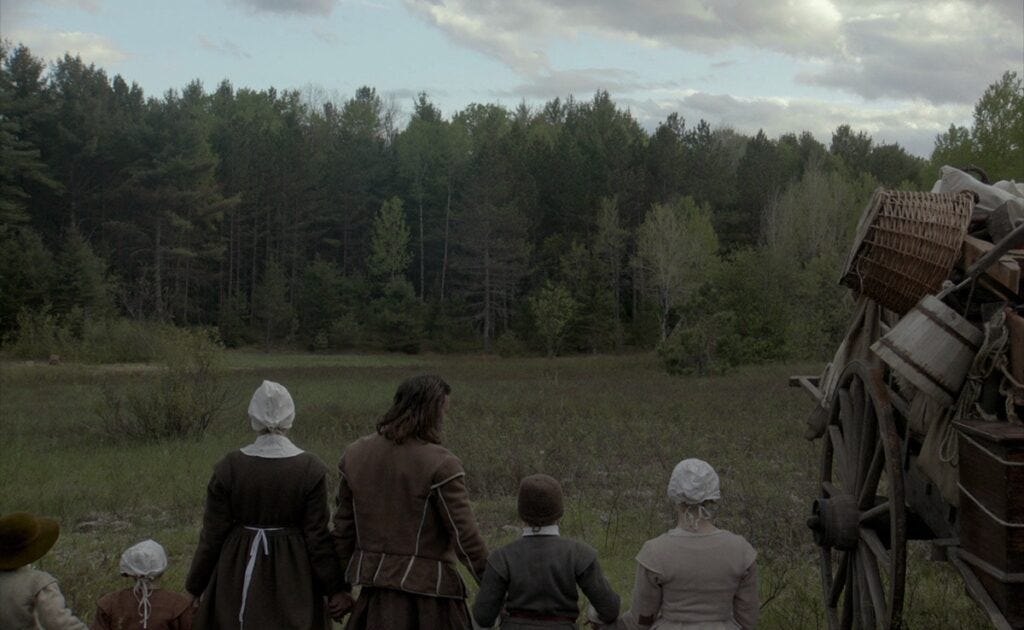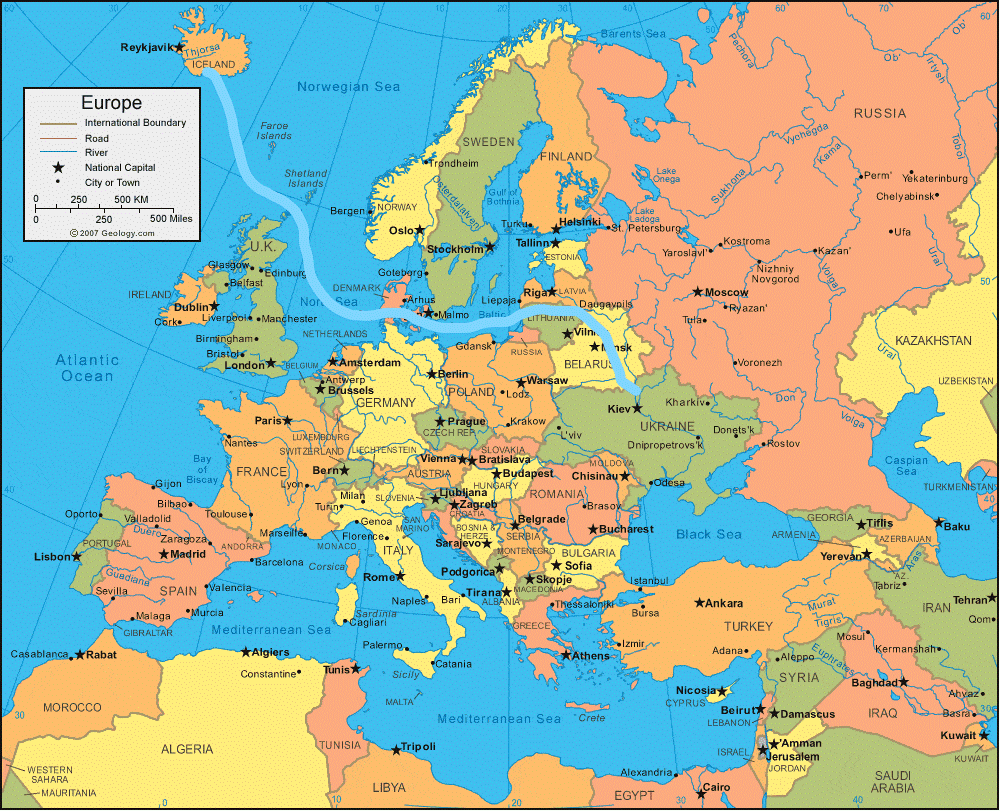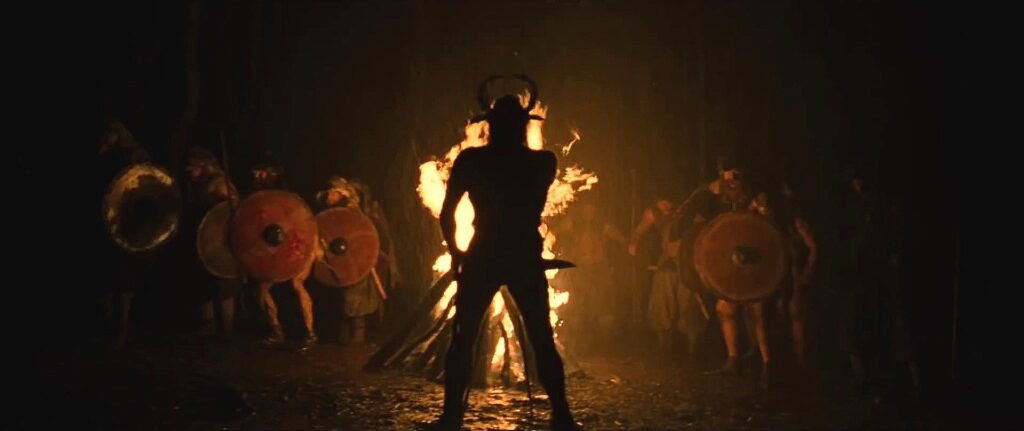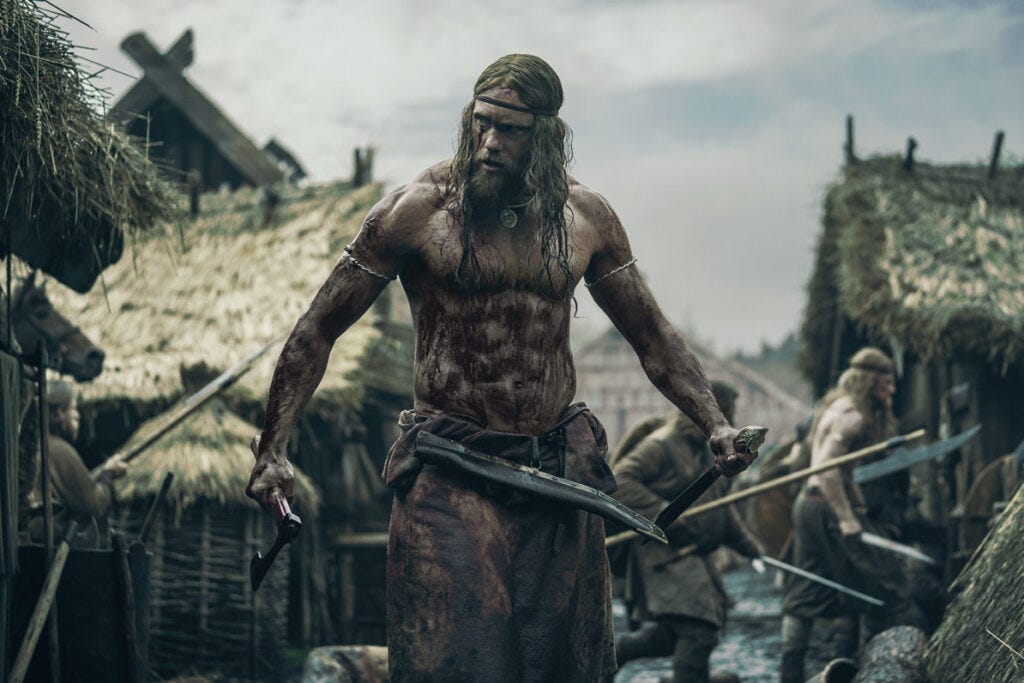The Northman: All Style, No Story
What's the point in visual storytelling when the story being told has no substance?
Robert Eggers became the darling of independent cinema with the 2015 release of The VVitch. I saw The VVitch in theaters with my father due to copious recommendation from all corners of the internet and found it approximately as instructive as the average high school production of Arthur Miller's The Crucible. My opinion was that Eggers rather spoiled the thematic purpose of Miller's seminal work by plagiarizing most of the dialogue and the entire story, while also presenting a world where witches and magic were real.
It rather changes the calculus of false accusations of witchcraft when witchcraft, in fact, exists, don't you think?
The VVitch is a beautiful movie, but like so many arthouse films it has serious storytelling deficiencies. Its attempts to recreate archaic dialogue are sophomoric and ineffective; the story is meandering and non-existent; the thematic purpose is hilariously inept; and the viewer will mostly be bored. He learns nothing from it. He feels nothing. It exists as little more than an exercise is visual scintillation, and therefore has more in common with pornography than William Shakespeare.
I've avoided Eggers ever since. I know his type. They make movies that Jay Bauman likes, but they can't write screenplays to save their lives. When I want to jerk off I'll go to PornHub; I don't need Eggers' help, thank you.
So I Saw The Northman
But then Hollywood goes and does something insane: they give Robert Eggers $90,000,000 to make a film starring Alexander Skarsgard, based on the original legend of Hamlet, about an exiled Viking prince seeking his revenge.
A movie like this is guaranteed to flop. There was no chance it made its money back. I cannot believe it was made. So I felt like I had to see it, even though I knew I wouldn't like it, because I knew Eggers would fuck it up.
How bad is it?
A common defense of films from pretentious pricks like Eggers will be about how, "actually, they're just much smarter than you, and you don't get it." If someone says this to you, you should make fun of them. This, and all other combinations of similar kinds of thinking, form no kind of defense for the substance of a film. Indeed they are a deflection: they presume guilt for the viewer, rather than the filmmaker.
Not something we do for most movies, yet a common procedure in the A24 realm.
Let me say now that The Northman is stupid. It's an enormously stupid movie. It borders on braindead. The screenplay is hooked up to life support and Nurse Eggers is deploying endless visual smokescreens in the hope that you don't notice the beeping of the heart monitor. I'll go into further detail presently, but allow me to say now that the distractions almost work.
The Northman is terminally stupid. But it's also beautiful. It's atmospheric. It's straightforward. It isn't confusing. The performances are good. It also isn't boring, which is more than I can say of The VVitch.
The Northman
In this historical epic, Alexander Skarsgard plays the exiled prince of a Viking kingdom forced to grow up as a furry in the wilds of Eastern Europe after his uncle killed his father and usurped his inheritance. His name is Amleth, and he is sworn to vengeance.
Sound familiar yet?
It turns out once little Amleth has grown, however, that this uncle wasn't able to hold onto his usurped crown. He's also been exiled, all the way to Iceland. In discovering this, Amleth sells himself to slavers along the Dnieper, ultimately finding himself as one of many slaves on his uncle's Icelandic estate.
Those of us with a knowledge of European geography will have raised an eyebrow at this point. It is true that the Vikings brought many slaves with them to Iceland, but most were Irish. You can understand why, given that Ireland and Iceland are neighbors. What seems much less likely is that anyone would ever bother transporting a galley full of slaves from Eastern Europe to Iceland.
Huh? There was no particular story reason for them to go to Iceland, by the way. They simply did it in the normal course of business.
I would bet money that this never happened in real life. Eggers could have ameliorated all this by simply saying that Amleth had been exiled to Ireland instead of Rus. The story would make much more sense. But he didn't. Why not? I would postulate it's because he didn't care. Story is beneath his consideration. Historicity is not much worth it, either.
On this journey Amleth meets his future love interest, a Slavic woman who is apparently a witch. Presently after landing he is assaulted by psychedelic visions of dubious supernaturality, one of which leads him to an ancient Viking burial mound, whereupon he finds Draugr, the magical sword with which he slays his future enemies.
I quite like the psychedelic aspect of this film. I've read often that Viking berserkers--and Amleth is one--took psychedelics before wading into battle, and I find it interesting that we're never quite sure whether or not the magic is real or imaginary from his point of view. He fights the undead king holding Draugr in his attempt to claim it, before we realize it's all a hallucination--most likely. It's a bit of a cliche, but it's a fun scene.
But then it turns out that Draugr is literally a magical sword which can only be drawn at night. The magic must therefore be real. This isn't psychedelics playing tricks on the mind; this is actual supernatural intervention.
I'm fine with that, though. As Amleth stalks his uncle's estate with the nightblade, waiting for the rooster to signal the time where his sword can no longer be used, The Northman feels more like a ninja film than one about Vikings. But it's an interesting concept. There's something to work with there, and the film's second act is its strongest showing.
But the story is so weak. The screenwriters were on vacation. For example, the crypt where Draugr is found? Oh, well, Amleth stumbles into it. It was just right there! How convenient! How does our hero get his magical sword? He just finds it laying around on the ground, fifteen inches from his evil uncle!
Then he goes on his purges through his uncle's estate. He strikes at night, killing guards, mutilating their bodies, displaying them for all to see. "He is a spirit," one says. "How does he do it so quickly? How does he do it without being seen?"
It's an interesting question. The estate is full of people. There are guards everywhere. Dogs on watch. Amleth might have a magical sword, but he's still just one man. How exactly DOES he do it without being seen? How did he mutilate those people and hang up their bodies on the barn without anyone noticing? That must have taken a while. I would've loved to see how he pulled it off!
But it would've been impossible to pull off. The scene makes no sense. There's no way Amleth could have done it. But Eggers wanted it to happen, so rather than grappling with this fact--he just did it off screen. How to have the characters do something undoable?
Cut around it! Storytelling!
Or how about when Amleth and his girlfriend meet up after the assassination of his uncle's oldest son? When it's clear that there will be hell to pay, that the slaves will be killed for this, that playing nice is over? The two of them have a chance to escape. They're in the clear. They can both leave. It's obvious what's going to happen next.
"No!" Amleth says. "You must stay here!"
"Okay!" says Girlfriend. "I agree. I'll stay here to get killed, so you will have to come and save me, so you can get captured!"
"That's a good idea," replies Amleth. "Let's do that!"
So when Girlfriend is about to get killed in the obvious way that was obviously going to happen, Amleth has to come and save her, and thus Amleth is captured; and so we see the characters behaving in ways that aren't only stupid, but that literally make no sense. Amleth and Girlfriend were IN THE CLEAR. They had DONE IT. They were FREE. They WANTED TO ESCAPE TOGETHER; they had NO REASON TO STAY.
WHY DID SHE STAY BEHIND?
Oh, I know. Because Amleth had to get captured, because that's the plot, and Eggers doesn't care about storytelling.
It's all right, though, because Amleth's uncle decides to leave his magical sword in the same room with him, so once he escapes with Girlfriend's help it's no harm, no foul. The two of them then conveniently encounter a friendly ship that happened to be waiting off the shore for them. Completely coincidental, but thank Odin he was there!
Dear Christ.
This is the whole movie
What I can say at least in The Northman's favor is that the main revenge thrust of the plot is easy to follow. But the narrative value of the story is low. The endless coincidences and the constant disregard for common sense among all characters represents a complete disinterest on the part of the writers in not just storytelling, but also humanity in general. There is no humanity in this movie.
I would be able to forgive everything were the fight scenes good. But they aren't. Every time the sword comes out, the foemen let themselves die. They refuse to use the pointy end of their weapons, or they conspicuously toss aside their shields so they might be stabbed. The duel at the end isn't bad but it's the exception to the rule. The siege at the beginning in particular is absolutely dreadful: a naked berserker takes on five guys in armor, with shields. Not because he savagely overcomes their defenses, not because he's skillful, not because he's brave, but really just because they let themselves be killed (oh, and their armor is costume that does nothing).
The combat scenes are well-shot. The framing looks good. But the choreography? It's bad.
Then we come to the characters. They could be worse, I suppose--the acting is okay, but the dialogue isn't. Every line is faux-Medieval, attempting to feel significant and mythological but mostly coming off like a fraud. Writing good dialogue that feels historical is always a challenge, but much like The VVitch, this attempt feels forced and unnatural, and quite often is so absurdly melodramatic that it becomes comedic.
And what is there to root for in character? In the historical tale of Amleth, the lead is a trickster: he overcomes his foes with wit. He embodies Loki, not Odin. Of course Shakespeare's Prince Hamlet is the wittiest character in all literature. But who is Amleth as played by Alexander Skarsgard? He's an angry, shirtless man who's spent decades in a fursuit, ravaging villages up and down the Dneipr. He has no other interesting qualities and no likable characteristics. He's just boring.
A Viking berserker doesn't need to be boring, you know. He could have a personality. He could make jokes and have wit, like Hamlet does. The opportunity was right in front of them. Instead he grumbles and yells and howls and wears his fursuit, and he seeks his vengeance like a good like Norseman, and there's nothing else there.
But Eggers doesn't care about character. Character is for soap operas. What matters is framing. What matters is the light. That's what the audiences really need! Only idiots care about people! What are we, in the theatre? Don't make me laugh.
That's the End
Like The VVitch, The Northman offers a plentitude of visual stimulus. Every frame is a photograph. And much like The VVitch, The Northman offers little else. No story, no catharsis, no lesson, no history, no emotion, and certainly no humanity. As the frames flicker past his eyes the viewer feels like he's in a gallery of paintings; amazed, even, by the artistry, but mostly just disinterested, because there's nothing but artistry on display--and one even wonders if the painter knew first hand the subjects he was trying to depict.
When it comes to Eggers, I doubt he did.


